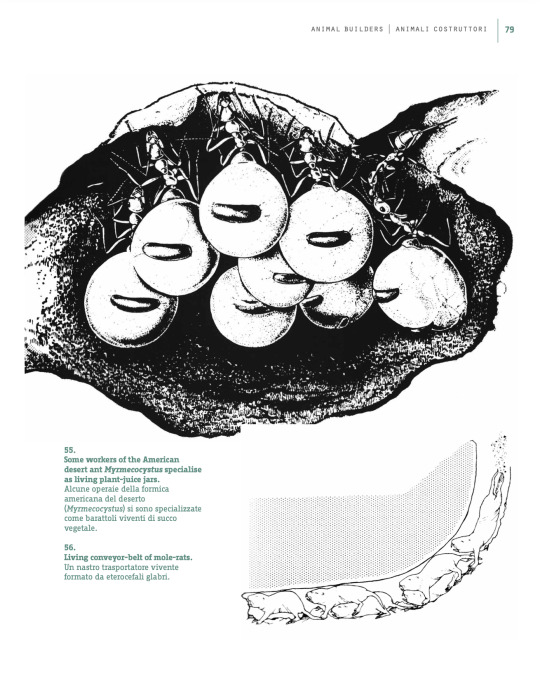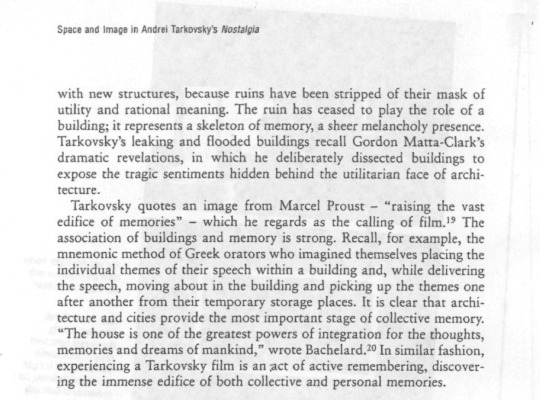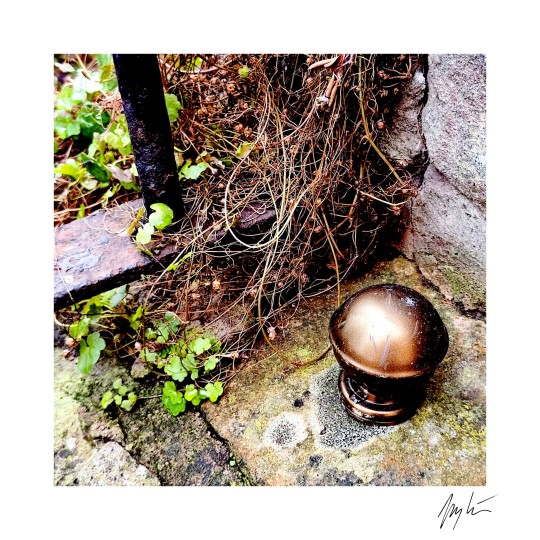#Juhani Pallasmaa
Explore tagged Tumblr posts
Text


Animal Architecture
25 notes
·
View notes
Text
Eu tampouco tinha pensado no fato de que muitos insetos e aracnídeos constroem estruturas absurdamente complexas e engenhosas usando variadas secreções metabolizadas por seus próprios corpos. Precisamos da tecnologia pra estender nossos corpos ao ambiente, e uma projeção metabólica como a desses animais inevitavelmente leva nossa imaginação ao território do horror corporal, mas o que poderia ser mais natural do que secretar o próprio material construtivo? Pallasmaa interrompe ocasionalmente sua narrativa sintética para refletir sobre o que os animais poderiam nos ensinar sobre arquitetura, ecologia ou mesmo sobre a beleza. Os exemplos da arquitetura animal, para ele, “representam um funcionalismo ecológico descomprometido”. Para os humanos, por outro lado, “a arquitetura é mais um mediador mental entre o mundo e nós mesmos do que um mediador entre os estilos de vida humanos e o contexto ecológico.” O que construímos é moldado por “fatores culturais, psíquicos e estéticos”, o que gera a tendência de afastamento do equilíbrio ecológico. Com mau gosto estético antinatural, projetamos nos interiores dos shopping centers, nos prédios de Camboriú e na esterilidade asfixiante dos condomínios nossos sonhos de imortalidade e de excepcionalidade, desafiando ou nos dobrando aos limites econômicos e materiais ao sabor do descaso e da megalomania.
Trecho de Arquiteturas, dentesguardados #28. A newsletter segue tão esporádica quanto viva, leiam e assinem :)
5 notes
·
View notes
Text

Rick Joy Desert Works
2 notes
·
View notes
Text
youtube
1 note
·
View note
Video
Folder Cover, The Thinking Hand by Russell Moreton Via Flickr: TheThinking Hand: Existential and Embodied Wisdom in Architecture. Juhani Pallasmaa
#The Thinking Hand#Juhani Pallasmaa#research#folder#interior#architecture#russell moreton#Heidegger#collage#visual art#visual fine art#spatial practice#research creation#ecology of experience#useless flickr uploader#civilization and its discontents#luddites and corporatism#flickr
1 note
·
View note
Text

Everyday Poetry - "A profound design process eventually makes the patron, the architect, and every occasional visitor in the building a slightly better human being." Juhani Pallasmaa
[Porto - Portugal - April 2025]
18 notes
·
View notes
Text
🪸KVOTHES’ BEST OF 2023🪸
in no particular order, except that i tried to list things that came out this year/last year first <3
poetry
almost obscene, raúl gómez jattin
master, simon shieh
the book, mary ruefle
judas goat, gabrielle bates
please make me pretty, i don’t want to die, tawanda mulalu
ballast, quenton baker
all the flowers kneeling, paul tran
fiction
mrs. s, k. patrick
annihilation, jeff vandermeer
the name of the rose, umberto eco
nonfiction
patricia highsmith: her diaries and notebooks 1941–1995, ed. anna von planta
it was vulgar and it was beautiful: how aids activists used art to fight a pandemic, jack lowery
the eyes of the skin: architecture and the senses, juhani pallasmaa
movies
asteroid city dir. wes anderson
poor things dir. yorgos lanthimos
killers of the flower moon dir. martin scorsese
oppenheimer dir. christopher nolan
stop making sense dir. jonathan demme (1984)
days of heaven dir. terrence malik (1978)
they live by night dir. nicholas ray (1948)
38 notes
·
View notes
Text
“The ruin has ceased to play the role of a building; it represents a skeleton of memory, a sheer melancholy presence.”

Juhani Pallasmaa on Tarkovsky and Proust and Bachelard
24 notes
·
View notes
Text
Books about game design but not really but really
Collecting my suggestions & others' from a twitter thread (remember those?)
Invisible Cities, Italo Calvino Pilgrim in the Microworld, David Sudnow Breathing Machines, Leigh Alexander Chronicle of a Death Foretold, Gabriel Garcia Marquez Einstein’s Dreams, Alan Lightman An Inventory of Losses, Judith Schalansky Visit to a Small Planet, Elinor Fuchs (https://web.mit.edu/jscheib/Public/foundations_06/ef_smallplanet.pdf) Noises Off, Michael Freyn Influence, Robert Cialdini Ficciones, Jorge Luis Borges Wonderbook, Jeff VanderMeer Pale Fire, Vladimir Nabokov The Westing Game, Ellen Raskin Motel of the Mysteries, David Macaulay Ghost Stories for Darwin, Banu Subramaniam (esp. “Singing the Morning Glory Blues”) Batman: The Animated Series Writer’s Bible (https://dcanimated.com/WF/batman/btas/backstage/wbible/) Dictionary of the Khazars, Milorad Pavić The Passion, Jeannette Winterson Rainbows End, Vernon Vinge Cat’s Cradle, Kurt Vonnegut Between the Acts, Virginia Woolf Where Did You Go? Out. What Did You Do? Nothing., Robert Paul Smith A Telling of the Tales, William J. Brooke Finishing The Hat & Look, I Made A Hat, Stephen Sondheim Finite and Infinite Games, James P. Cause Exercises in Style, Raymond Queneau The Design of Everyday Things, Don Norman Life: A User's Manual, Georges Perec The Information: A History, A Theory, A Flood, James Gleick 7 1/2 Lessons About The Brain, Lisa Feldman Barrett
additions: Microserfs, Douglas Coupland The Eyes of the Skin, Juhani Pallasmaa House of Leaves, Mark Z. Danielewski Piranesi, Susanna Clarke
13 notes
·
View notes
Text
Computer imaging tends to flatten our magnificent, multi-sensory, simultaneous and synchronic capacities of imagination by turning the design process into a passive visual manipulation, a retinal journey. The computer creates a distance between the maker and the object, whereas drawing by hand as well as working with models put the designer in a haptic contact with the object, or space. In our imagination, the object is simultaneously held in the hand and inside the head, and the imagined and projected physical image is modelled by our embodied imagination. We are inside and outside of the conceived object at the same time. Creative work calls for a bodily and mental identification, empathy and compassion.
Juhani Pallasmaa, The Eyes of the Skin: Architecture and the Senses
#quote#Juhani Pallasmaa#The Eyes of the Skin#Pallasmaa#architecture#architectural theory#senses#computers#digital#drawing#computer imaging#technology#creativity#design#making
130 notes
·
View notes
Text
“Dazzling images on a huge silver screen… sound that I can feel”
-Juhani Pallasmaa, The Eyes Of The Skin
6 notes
·
View notes
Text

Top, The first thing you’ll see if you search Google for “tank man” right now will not be the iconic picture of the unidentified Chinese man who stood in protest in front of a column of tanks leaving Tiananmen Square, but an entirely fake, AI-generated selfie of that historical event. Update 9/21/2023: Google says it has removed the AI-generated selfie from Knowledge Graph and Knowledge Panels, where it was appearing, after 404 Media reached out for comment and first published this story. Via. Bottom, Eva and Franco Mattes, BEFNOED, 2013-ongoing, installation view from the exhibition Fake Views at Frankfurter Kunstverein, July 14 – September 10, 2023. Photo: Melania Dalle Grave. Via.
--
Computer imaging tends to flatten our magnificent, multi-sensory, simultaneous and synchronic capacities of imagination by turning the design process into a passive visual manipulation, a retinal journey. The computer creates a distance between the maker and the object, whereas drawing by hand as well as working with models put the designer in a haptic contact with the object, or space. In our imagination, the object is simultaneously held in the hand and inside the head, and the imagined and projected physical image is modelled by our embodied imagination. We are inside and outside of the conceived object at the same time. Creative work calls for a bodily and mental identification, empathy and compassion.
Juhani Pallasmaa, from The Eyes of the Skin: Architecture and the Senses, 1996. Via.
4 notes
·
View notes
Text

Melancholy of Time
4 notes
·
View notes
Photo

From Juhani Pallasmaa The Eyes of The Skin: Architecture and The Senses quoting Thus Spoke Zarathus, 14.
4 notes
·
View notes
Video
Folder Cover, The Thinking Hand by Russell Moreton Via Flickr: TheThinking Hand: Existential and Embodied Wisdom in Architecture. Juhani Pallasmaa
#The Thinking Hand#Juhani Pallasmaa#research#folder#interior#architecture#russell moreton#Heidegger#collage#visual art#visual fine art#spatial practice#research creation#ecology of experience#useless flickr uploader#civilization and its discontents#luddites and corporatism#flickr
1 note
·
View note
Text

Everyday Poetry - "The door handle is the handshake of the building." Juhani Pallasmaa
#photography#original photography on tumblr#photographers on tumblr#happiness#quotes#daily calm#art#living
15 notes
·
View notes